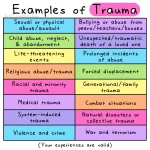The following article on Male Survivors of Sexual Abuse, is from Fredonia.edu, and provides information about the sexual assault of men and the resources available to survivors. julie.bezek@fredonia.edu
Male Survivors
Many people believe that sexual assault is only committed by men against women. While the majority of sexual assaults victims are women, the CDC and Department of Justice estimate that about 3% of American men — or 1 in 33 — have experienced an attempted or completed rape in their lifetime. The following provides information about the sexual assault of men and the resources available to survivors. There are is also information for male survivors of childhood sexual abuse.
Understanding sexual assault of men
Who can be a perpetrator of male sexual assault
What are some of the feelings male survivor may experience?
What should I do if I was sexually assaulted?
How can I help a male friend who has been sexually assaulted or sexually abused in the past?
Childhood Sexual Abuse
Additional Resources for Male Survivors (website, articles, books)
Understanding sexual assault of men
Many people don’t take sexual assault of men seriously. This is one of the reasons why men have a difficult time reporting what happened and why the rates of male sexual assault are thought to be significantly under-reported. If a survivor’s friends think that male sexual assault is a joke, he will feel isolated and afraid to tell anyone. Sexual assault is a painful, traumatic experience for any victim.
Sexual assault is any unwanted or forced sexual contact. It can be committed by the use of threats or force or when someone takes advantage of circumstances that render a person incapable of giving consent, such as intoxication. Sexual assault of men can include unwanted touching, fondling, or groping of a male’s body including the penis, scrotum or buttocks. Rape is any kind of sexual assault that involves forced oral or anal sex, including any amount of penetration of the anus or mouth with a body part or any other object.
Sexual assault happens to men.
It is only a myth in our society that men are not sexually assaulted, or that they are only sexually assaulted in prisons. In fact, 9% of all rape victims outside of criminal institutions are male (U.S. Department of Justice, 1994). It is important to note, however, that very few studies have been done to document the sexual abuse or sexual assault of males. Furthermore, it is estimated that male survivors report sexual assault and abuse even less frequently than female survivors, and so it is difficult to make an accurate estimate of the number of men and boys who are being assaulted and abused.
Male survivors have many of the same reactions to sexual assault that women do.
For both male and female survivors, anger, anxiety, fear, confusion, self-blame, shame, depression, and even suicidal thoughts are all common reactions for someone who has experienced a sexual assault. Men, however, are more likely than women to initially respond with anger, or to try to minimize the importance or severity of the assault. Male survivors are also more likely to experience substance abuse to try to cope with the assault. Additionally, a survivor of a male-on-male rape may question his sexuality, or how others perceive his sexuality.
Ideas in our society prevent male survivors from speaking out about sexual assault.
Because of how men are socialized and expected to behave in our society, a male survivor of sexual assault may feel as if he is not a “real man” Because men are often expected to always be ready for sex and to be the aggressors in sexual relationships, it may be difficult for a man to tell people that he has been sexually assaulted. Also, there are some beliefs that male survivors, especially if abused as a child, will go on to become offenders themselves. This stigma may negatively impact a male survivor’s social experiences, and it may also lead male survivors to avoid disclosure.
Homophobia causes men who have experienced a male-on-male rape to fear telling their stories.
If the perpetrator is a man, the survivor may fear being labeled gay by those he tells of the assault. He may even question his own sexuality, especially if he experienced an erection or ejaculation during the assault. If the survivor identifies as gay, and in the process of coming out, he may question how others perceive his sexual orientation. He may also fear that he will have to disclose his sexual orientation if he tells others about the assault. Homophobia stereotypes may affect a man’s decision to disclose. For example, the stereotype that gay men are promiscuous can lead people to believe the encounter was consensual. Also, because of these stereotypes, some people may think that they recklessly place themselves in situations to be assaulted, resulting in victim-blaming attitudes.
Who can be a perpetrator of male sexual assault?
Anyone, regardless of gender or gender identity, can sexually assault a man. However, most sexual assaults against men are committed by other men, who actually identify themselves as heterosexual. It’s important not to jump to the conclusion that man-against-man sexual assault only happens between men who are gay. Sexual assault is not about sexual desire or sexual orientation; it’s about violence, control, and humiliation.
What are some of the feelings a male survivor may experience?
Any survivor of sexual assault may experience the following feelings, but male survivors may experience these feelings in a different way:
Guilt — as though he is somehow at fault for not preventing the assault because our society promotes the misconception that men should be able to protect themselves at all times.
Shame — as though being assaulted makes him “dirty,” “weak,” or less of a “real man.”
Fear — that he may be blamed, judged, laughed at, or not believed.
Denial — because it is upsetting, he may try not to think about it or talk about it; he may try to hide from his feelings behind alcohol, drugs, and other self-destructive habits.
Anger — about what happened; this anger may sometimes be misdirected and generalized to target people who remind him of the perpetrator.
Sadness — feeling depressed, worthless, powerless; withdrawing from friends, family, and usual activities; some victims even consider suicide.
If a man became sexually aroused, had an erection, or ejaculated during the sexual assault, he may not believe that he was raped. These are involuntary physiological reactions. They do not mean that the person wanted to be sexually assaulted, or that they enjoyed the traumatic experience. Just as with women, a sexual response does not mean there was consent.
The experience of sexual assault may affect gay and heterosexual men differently. It is important to remember that the sexual assault did not occur because they are gay. Heterosexual men often begin to question their sexual identity and are more disturbed by the sexual aspect of the assault than any violence involved.
What should I do if I was assaulted?
Please click here for more information on reouces avaulable for sexual assault survivior and please click here for information how to report sexual violence.
How can I help a male friend who has been sexually assaulted or sexually abused in the past?
- Take it seriously.
- Ask him what you can do to support him.
- Let him know that it was not his fault.
- Let him know he is not alone.
- Find out about resources that are sensitive to male victims and let him know his options.
- Tell him that help is available and encourage him to call a rape crisis hotline.
- Don’t pressure him to do certain things. He needs to know that he has choices and that you support him.
Childhood Sexual Abuse
Counseling can be an integral part of recovery from a childhood sexual abuse. We encourage survivors to contact the Counseling Center at 716-673-3424. Services are free and confidential. They are located in LoGrasso Hall and are open M-F 8:30 am – 5:00 pm. The Resources section has specific listings for childhood sexual abuse survivors.











